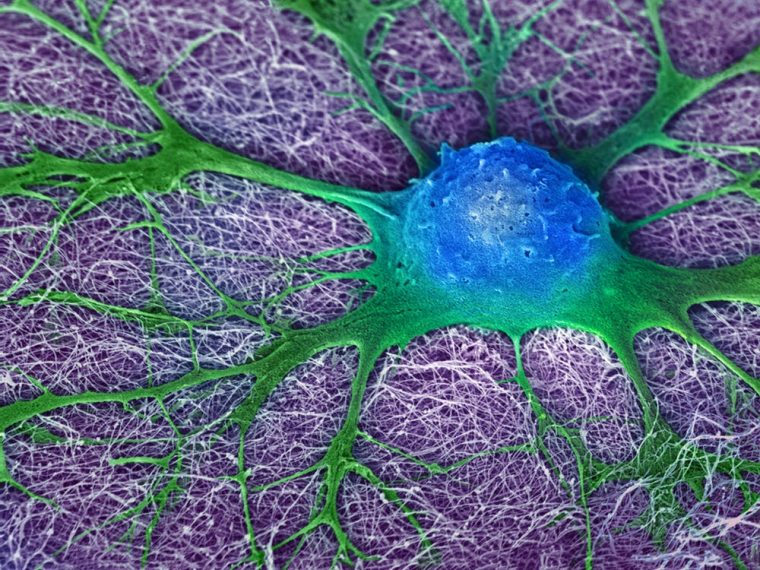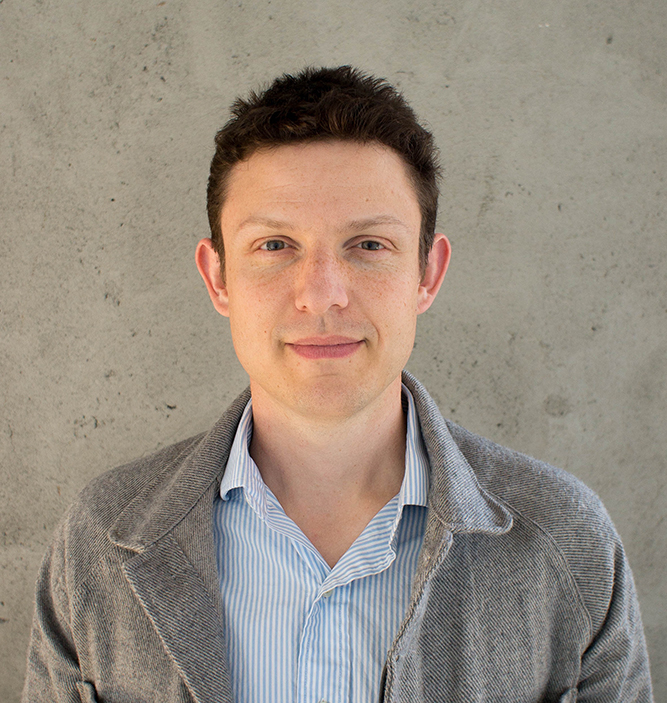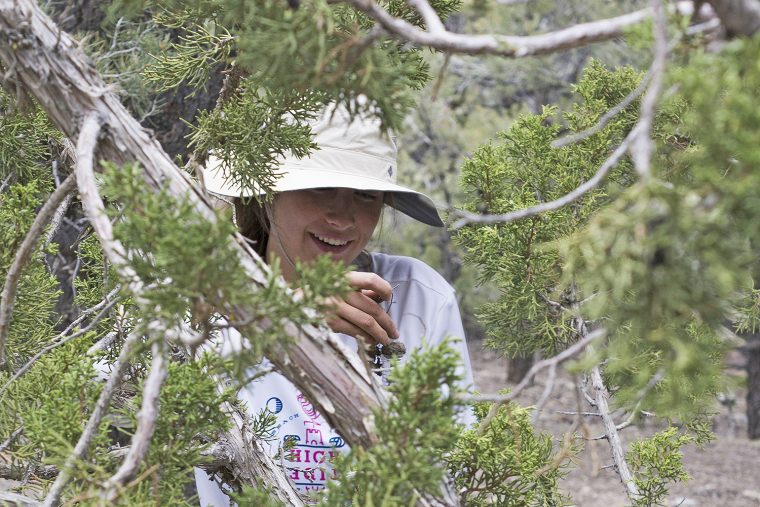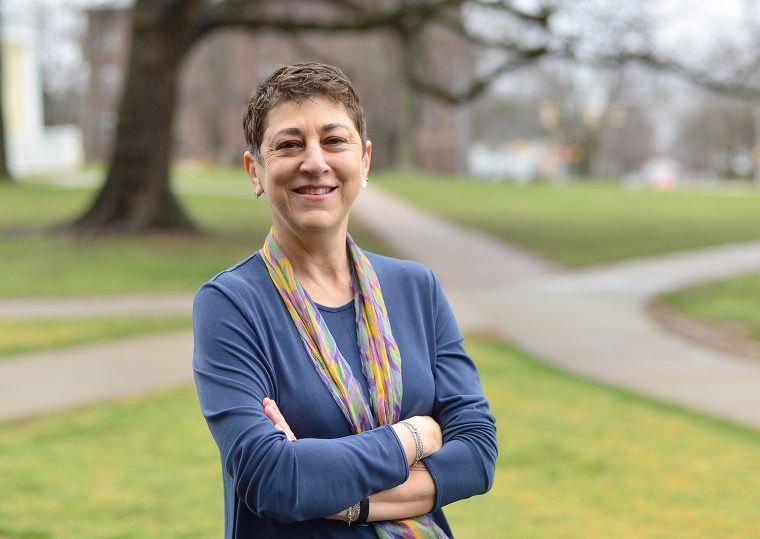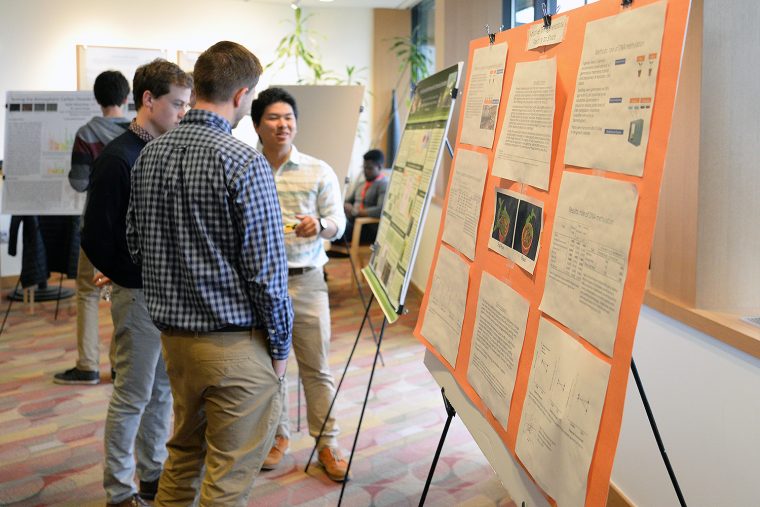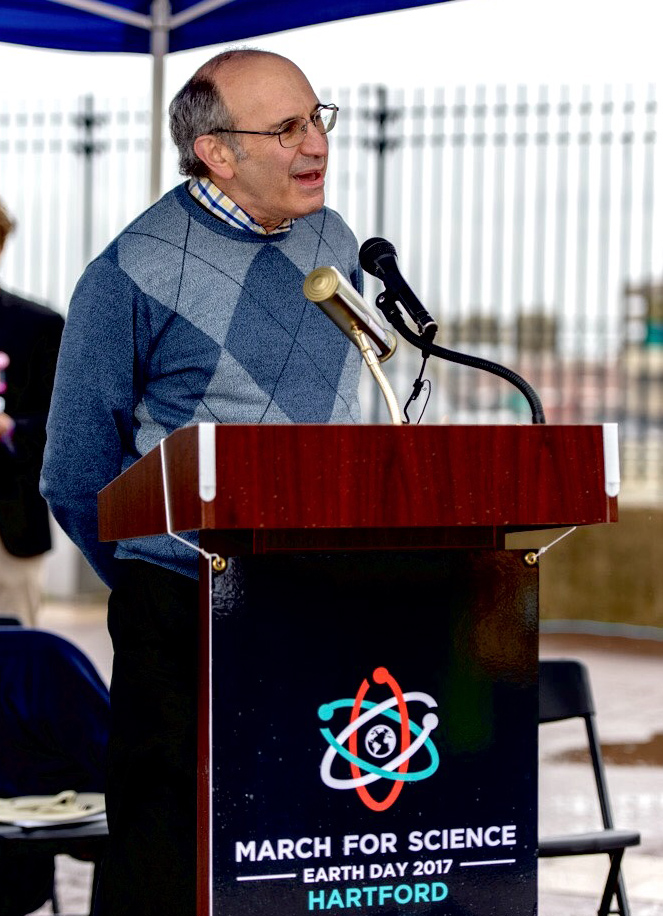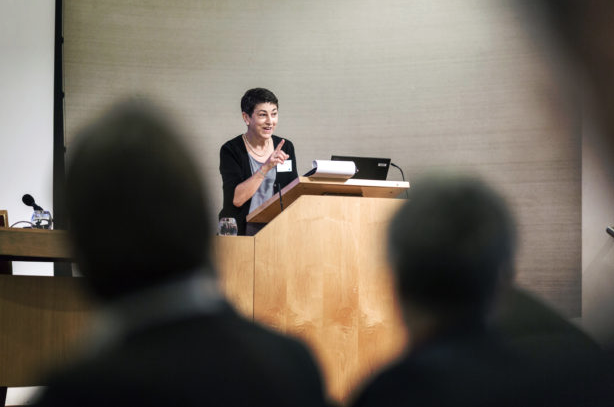In this recurring feature in The Wesleyan Connection, we highlight some of the latest news stories about Wesleyan and our alumni. Recent Wesleyan News Hartford Courant: "Connecticut Natives at Wesleyan Organize TEDx Conference" Wesleyan hosted its inaugural TEDx conference on April 7, featuring talks by many distinguished alumni, local officials, and others. Two of the student organizers, Eunes Harun '20 and Leo Marturi '20, are interviewed about the event. 2. The Hill: "Trump, Pelosi Appear Most in Early Ads—for the Other Side" A new analysis from the Wesleyan Media Project finds that Donald Trump has been the top target of political attack ads this…
Wesleyan faculty frequently publish articles based on their scholarship in The Conversation US, a nonprofit news organization with the tagline, “Academic rigor, journalistic flair.” Janice Naegele, the Alan M. Dachs Professor of Science, writes about the implications of a controversial new neuroscience study from the University of California, San Francisco. Naegele also is professor of biology and professor of neuroscience and behavior. Read her bio on The Conversation. Scientists have known for about two decades that some neurons—the fundamental cells in the brain that transmit signals—are generated throughout life. But now a controversial new study from the University of California, San Francisco, casts doubt…
More than 20 Wesleyan students — including three former first-years — are co-authors of a research manuscript accepted for publication in a prestigious biology research journal. The paper focuses on a species of fruit fly that has evolved, and has the ability to ingest a toxic plant. The paper, which is forthcoming in G3: Genes | Genomes | Genetics, is the result of a study completed by BIOL310 Genomics Analysis students. Course instructor and co-author Joseph Coolon, assistant professor of biology, created BIOL310 to provide students a course-based research experience focused on measuring gene expression. "Because the students in the course and in my lab collaborated on…
Ben Oppenheim ’02, a consulting scientist with Metabiota, a start-up focusing on epidemiological modeling and epidemic risk preparedness, was recently invited to participate in a workshop at the National Academy of Medicine. As a result, Oppenheim and his colleagues wrote an article published in Lancet Global Health titled "Financing of International Collective Action for Epidemic and Pandemic Preparedness," based on these meetings. Also writing for the Brookings Institution, Oppenheim further explored the challenges of responding to global outbreaks, offering a four-point plan to protect the global poor during pandemics, with co-author Gavin Yamey. "Post-Ebola and Zika, there's been increasing worry—and debate—about how to prepare…
This spring, a research team from Wesleyan traveled to Death Valley National Park to explore the ways bacteria diversifies in extreme environments. Death Valley, located about 130 miles west of Las Vegas, is a below-sea-level basin known for being the hottest place on earth and driest place in North America. The average rainfall is less than 2 inches, annually. "National parks are ideal for research, in general, because the land is protected indefinitely from commercial development," said team leader Fred Cohan, professor of biology, professor of environmental studies. "Death Valley is a nice model system for exobiology because of its extreme…
Sonia Sultan, professor of biology, professor of environmental studies, presented the keynote address at the 2017 Diebold Symposium, held at Kalamazoo College, April 27-29. Her talk was titled "Plant Environmental Response: A Weedy Answer to 3 Big Questions.” In the keynote talk, Sultan presented findings from her Wesleyan research group and discussed their implications for heredity and evolution. In mid-May, Sultan will join an invited group of 16 biologists and philosophers at the Konrad Lorenz Institute in Vienna, Austria, for discussions of causality in evolutionary biology. The workshop is part of an international consortium of researchers and philosophers funded by…
The annual StemCONN conference, held April 27 in New Haven, made clear that Connecticut’s commitment to stem cell research has helped the state become a national leader in this burgeoning area of research and commercial development. Wesleyan is one of the founders of the StemCONN conference, along with Yale and the University of Connecticut. This year marks the 6th StemCONN conference, an event that brings together more than 500 individuals from academic institutions, bioscience industry, and government. “Stem cell research continues to be an exciting and fast-paced field with new discoveries fueling prospects for new therapies based on regenerative medicine…
(more…)
Numerous Wesleyan faculty and students in the sciences attended the March for Science in different parts of the state and country on Earth Day, April 22. Laura Grabel, the Lauren B. Dachs Professor of Science and Society, professor of biology, professor of environmental studies, professor of feminist, gender and sexuality studies, spoke at the New Haven march. "I decided to march because science is being seriously threatened by the Trump administration," she explained. "Trump has not filled almost all of the science positions, has no science advisor, and is using little evidence-based thinking in his decision making. Some of his appointments are puzzling and…
Frederick Cohan, professor of biology, professor of environmental studies, has recently been elected to the Connecticut Academy of Science and Engineering (CASE). Set to be inducted during the 42nd Annual Meeting and Dinner on May 22, 2017, Cohan will join 23 others as “Connecticut’s leading experts in science, technology, and engineering,” and the academy’s newest members during their ceremony at the University of Connecticut. In line with CASE’s mission to honor those “on the basis of scientific and engineering distinction, achieved through significant contributions in theory or application,” Cohan’s work has led to the “development of a comprehensive new theory…
Laura Grabel, the Lauren B. Dachs Professor of Science and Society, professor of biology, warns in a new op-ed that the progress of embryonic stem cell research in this country, always subject to the ups and down of politics, is currently under threat. Co-authored with Diane Krause of Yale University, the op-ed in The Hartford Courant notes that Tom Price, President Donald Trump's nominee to head the Department of Health and Human Services, is on record opposing embryonic stem cell research. They write: As stem cell researchers, we fear that this appointment would endanger human embryonic stem cell research in the United States…
Sonia Sultan, professor of biology, professor of environmental studies, was invited to speak at a major meeting of London’s Royal Society in November. The theme of the meeting was “New Trends in Evolutionary Biology.” Sultan was joined by biologists, anthropologists, doctors, computer scientists and other visionaries to discuss the future of evolutionary biology. Sultan discussed her research on the Polygonum plant, known by its common name “smartweed.” Her research shows that if genetically identical smartweed plants are raised under different conditions, the end result is plants that may look like they belong to different species. Sultan is a plant evolutionary…



